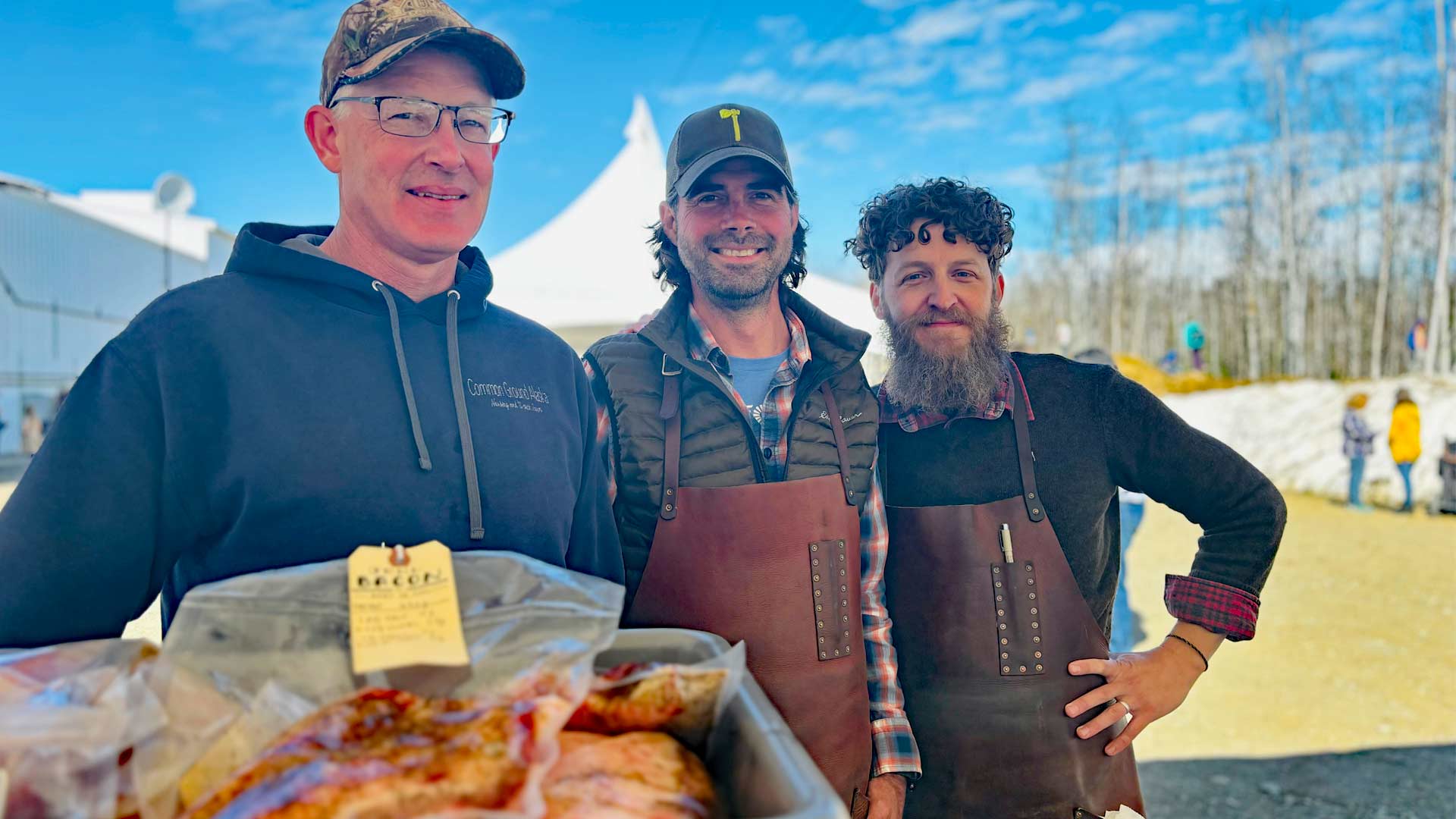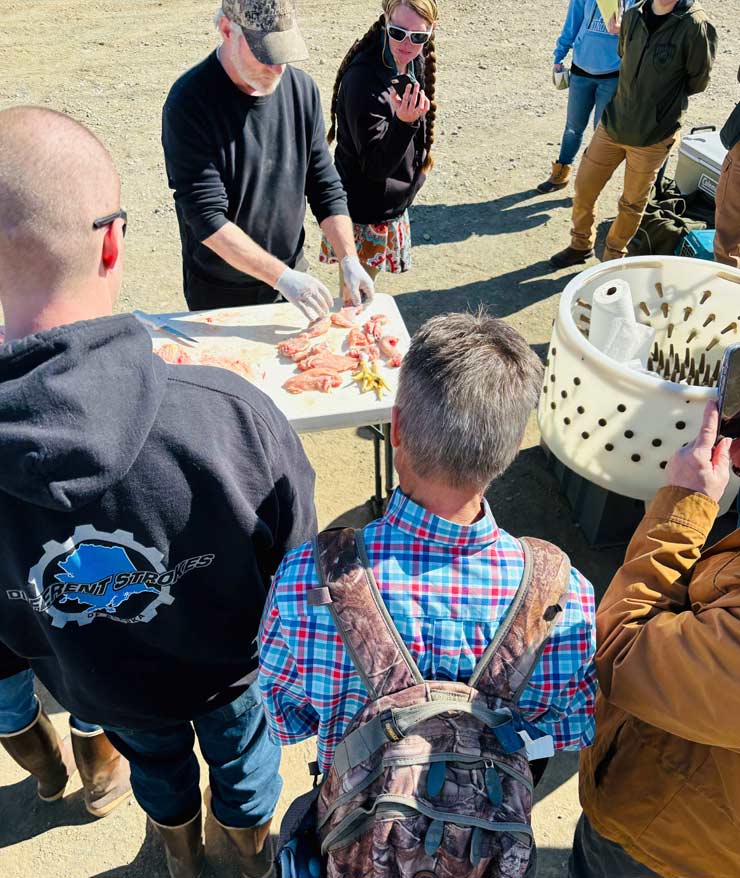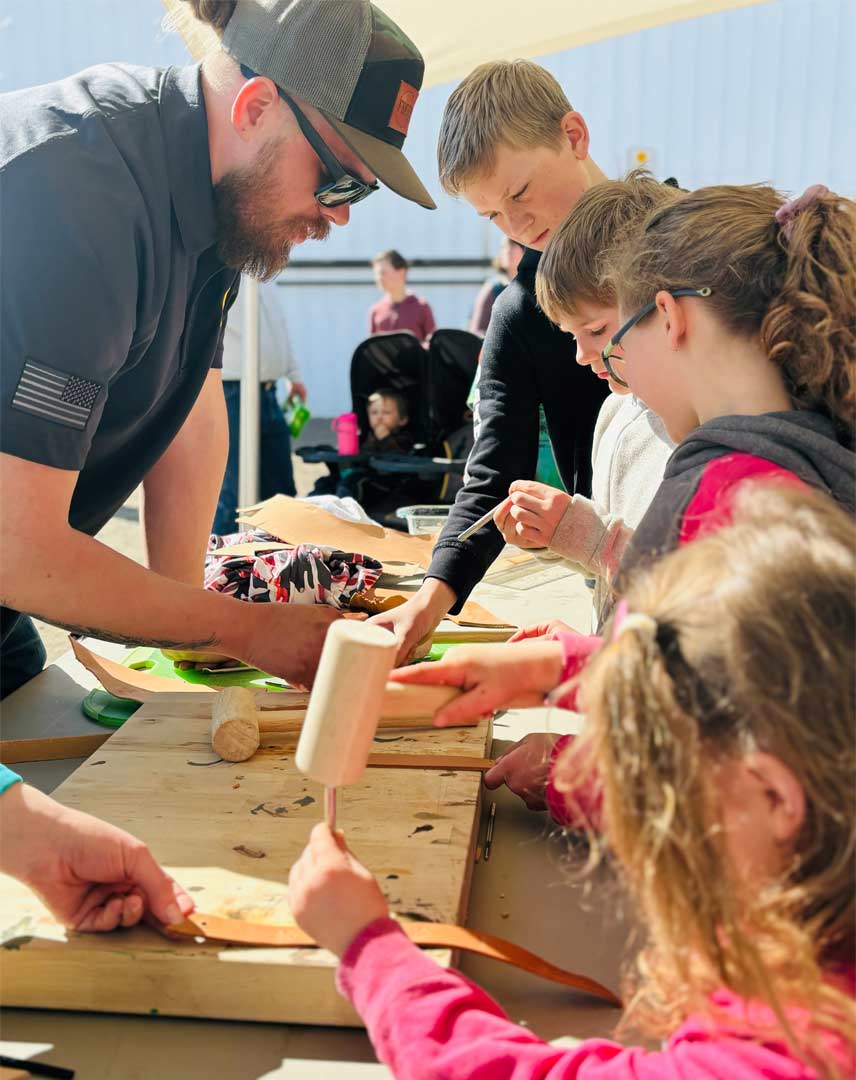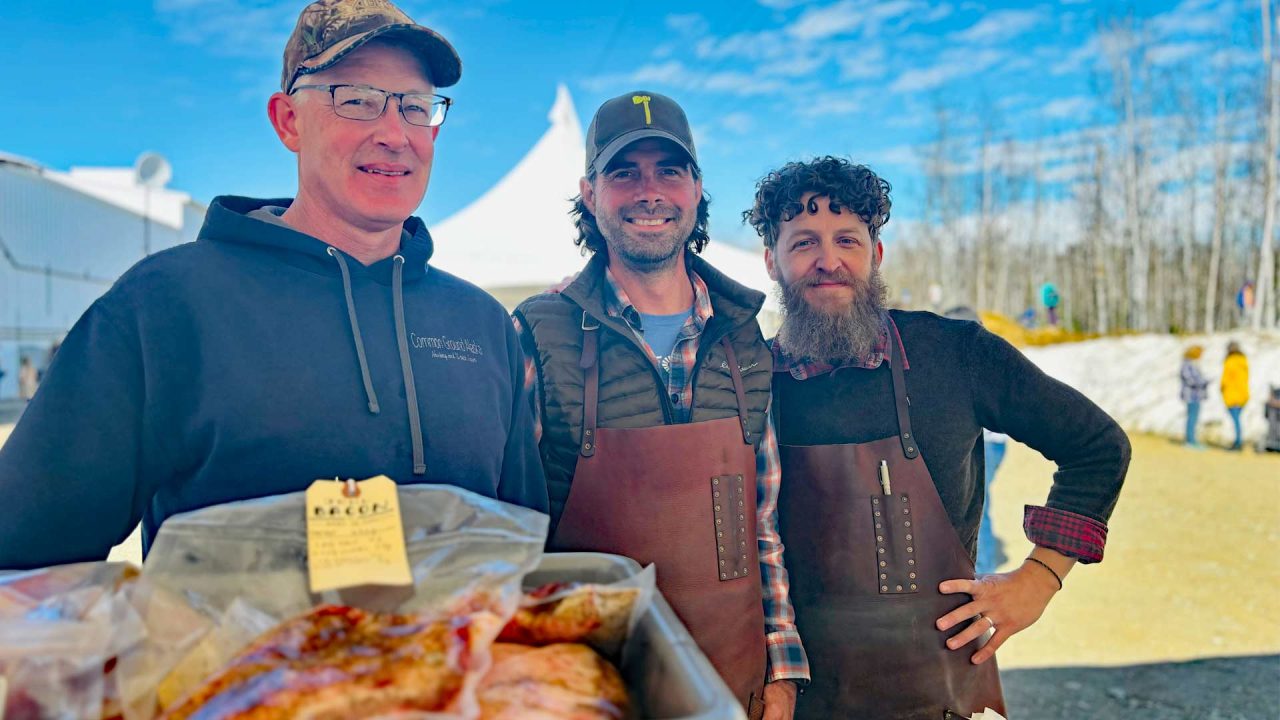

This past weekend saw a steady stream of Alaskans descend on Big Lake for the first annual Alaskan Homestead Expo, organized by Common Ground Alaska. Vendors, teachers and patrons alike converged from Kenai, Talkeetna and everywhere in between.
Although the exhibitors were intentionally sourced from local 4H chapters, neighborhood networks, and a constellation of area farmers, weavers and merchants, there was one niche which proved tougher to fill from local stock: hog butchering expertise.
Enter Doug Wharton and Andy Lane, proprietors of Hand Hewn Farm. Over the past seven years, the pair has seen explosive growth in the demand for both their onsite teaching and stops along America’s homesteading expo circuit, of which they’ve become headliners. One year in, Wharton was sure they’d reached everyone who would be interested. That, however, was just the beginning of what appears to be an insatiable appetite for guided food production workshops. Their demographics are varied, and the application of their skillset seems to have broad appeal.
“We need the disparate ends of the spectrum as much as they need each other,” Wharton noted. “The hog farmer and the guy from Le Cordon Bleu are intertwined – we’re here to draw that out.”
His class offered painstaking detail in the mechanics of butchering, while keeping students’ interest piqued on the social and cultural aspects. Special attention was given to vocabulary, acknowledging that their crowd ranged from seasoned ranchers to dilettantes and passersby. Someone swinging by as they perused the expo could ask questions, glean cultural trivia, hear book recommendations, and get an up-close anatomical tour while learning “seam butchering,” the European method favored by Lane and Wharton. Others hunkered down for every syllable and precise stroke of the blades, taking extensive notes and videos.
Based in Ohio’s Appalachian foothills, Hand Hewn Farm offers immersive workshops over several days focused on sustainable farming, traditional butchering, and Old World cuisine. Attendees of the Alaskan Homestead Expo were treated to an in-depth clinic taking a pig from whole and processing it by hand, right up to curing methods and delicacies at the end of the second afternoon.

Lane and Wharton have traveled to dozens of locales, beginning with the 2017 Homesteaders of America Expo in Virginia. Attended by thousands of people, each venue only seems to feed more awareness and curiosity of their offerings.
Their magnetic showmanship, willingness to travel and customize courses with laser focus has fed a growing demand for their skillset. Bringing ancient agricultural wisdom to a butcher block near you is as much about human connection as it is honoring the sustenance offered by animals.
As the Susitna winds whipped across his teaching space, someone asked, “Do you ever take breaks, when butchering?” Both men nodded, with Wharton describing a carving party: “There’s always music, always friends, always a crockpot simmering, and drinks ready. As soon as this begins to feel like work, you gotta’ stop and mix it up. I’m not even joking.”
“Yep. The first time you’re alone in a garage, working for eight solid hours to process an animal – you’ll never want to do it again,” agreed Lane.
Classrooms and tents were packed to capacity, flanked by retail and informational booths. Youth learned leather tooling, orienteering, and dug deeply into hands-on seeds, worms, sourdough baking and more. The meeting space overlooking the wintertime rink held a constant crowd, with topics such as foraging, culturing, and local history covered over the weekend.
Tandy Hogate, who runs Common Ground Alaska farm, helped put the Homestead Expo together, and was on hand throughout the event.
She described her own farmstead as both an adventure in teaching as well as a commercial venture. Her “Lady Homesteaders 101” cohort is now launching progressive courses, welcoming women of any skillset and inviting them to incrementally move through 200 and 300 level classes. All of her courses are free, included with membership at a monthly or annual level.
ALASKA WATCHMAN DIRECT TO YOUR INBOX
Situated on five acres and growing, Hogate described the unique aspects of her offerings: all plants and trees sold (with the exception of asparagus and strawberries) have been wintered over and hardened off for a year, ensuring they are tough enough to thrive in Alaska. She and her husband recently secured the state’s sole propagation license for cherries and honeyberries from the University of Saskatchewan.
Sara Williams staffed her produce stall during the gathering, using it as a chance to greet the public and introduce wares from Bush’s Bunches, for whom she runs the retail store. She also spoke about the potential in her generation of Alaskans who are ready to receive the torch from Colony Kids and their descendants – many of whom are now also moving into retirement. This shifting dynamic is filled with energy which must be harnessed strategically, according to Williams.
“The Lord is putting the right folks in our path every day,” she said.






